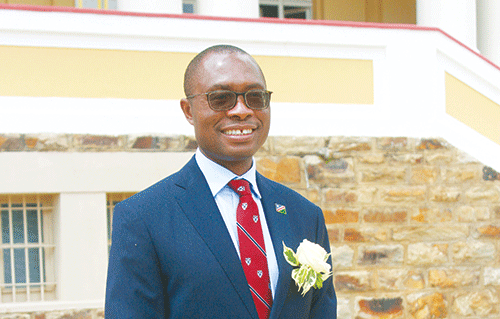IN the face of escalating public debt, it is imperative for Namibia to focus on specific industries that can drive repayment obligations. According to economic commentators, the country’s excessive public debt remains a major concern in the medium-term.
In his mid-year budget review towards the end of last year, finance and public enterprises minister Iipumbu Shiimi cautioned that the public debt servicing bill has increased beyond levels anticipated in the main budget. And, as the debt portfolio rises, it results in tighter financial conditions.
Currently Namibia is paying N$1.7 billion more, up to a total N$11.8 billion, or 15% of projected annual revenues, during the current financial year to service its national debt.
“As a developmental state, it is important to always prioritise economic and social development objectives in the design of fiscal policy.
The degree to which debt servicing is increasingly crowding out such key developmental objectives adds further impetus to the call to prioritise stabilising the pace of debt accumulation going forward,” Shiimi warned at the time.
Despite New Era queries sent to the finance ministry two weeks ago on strategies to be adopted to tackle the skyrocketing public debt, no response was received at the time of going to print.
Shiimi is scheduled to table the 2024/25 budget in the National Assembly on Thursday next week.
A statement from the International Monetary Fund (IMF) last month noted that Namibia should continue to tackle its current challenges of elevated public debt and weak non-resource sector growth.
Fiscal consolidation, it said, will help reduce public debt and create space for private sector growth.
Moreover, Theo Klein, employed at a local stock brokerage last year, stated that Namibia was borrowing a sizeable amount of N$29 million daily, including weekends, for the last 12 years. In 2010, Namibia’s public debt was around N$11 billion. This debt stock is expected to increase to N$138.4 billion, equivalent to 69.6% of gross domestic product (GDP), in the financial year 2022/23.
Local economist Omu Kakujaha explained: “There is only one way to pay off your debt and stay out of debt; you must make enough money to fund your spending.
Namibia should hence utilise the low hanging fruits to expand economic growth and consequently expand the tax base. With an expanded tax base and increased revenue, Namibia can fund its developmental objectives without the need for heavy borrowing. That will reduce your debt-to-GDP and debt servicing cost’.-mndjavera@nepc.com.na


